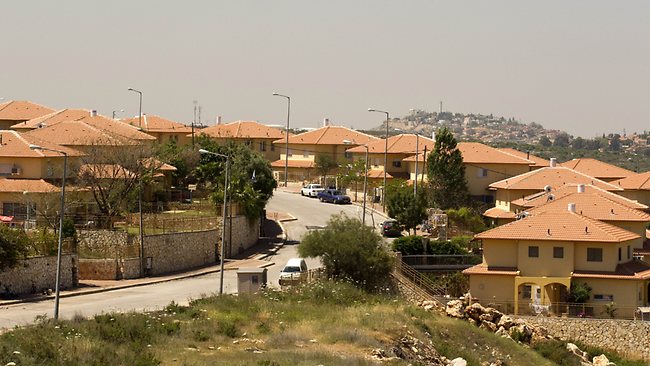UPDATES
Two AIJAC letters responding to factually inaccurate reporting on Israeli settlements
August 16, 2013

Two letters from AIJAC staff members were published today responding to erroneous headlines and reporting in Australian newspapers regarding Israeli settlements in the West Bank.
An edited version of the following letter from AIJAC Executive Director Dr. Colin Rubenstein was published in today’s Australian:
The story “Israel approves further settlements on eve of peace talks” (August 14, p. 9) featured two incorrect claims, starting with the headline.
Israel has not authorised the construction of new settlements. In fact, no new West Bank settlement has been authorised by Israel since the 1990s.
Since 2003 all settlement growth has occurred within the existing boundaries of long-standing settlements.
Recent Israeli announcements have been about tenders and planning approval to build around 2000 apartments solely in existing Jerusalem neighbourhoods and well-established settlements that Palestinian negotiators themselves have agreed in past talks will remain within Israel if and when a peace deal is reached.
In addition, US Secretary of State John Kerry never said Israel’s settlements are “illegal”, as the news story claimed.
Kerry actually repeated the Obama Administration’s standard formula designed to express disapproval without making a judgement on legality, saying “As you know… the United States of America views all of the settlements as illegitimate.”
It may seem to be splitting hairs but in the context of the conflict, it is actually a significant difference.
The US, under successive administrations, has regarded settlement as unhelpful and counter-productive because the territory on which they are situated is disputed, not occupied, land that is claimed by two different parties.
The US also understands that the solution to the problem of settlements is to create a two-state resolution which draws final borders and ends the dispute over land. Three times, Israel has offered such a resolution, in the latest proposing to give Palestinians the equivalent of 100% of the West Bank and Gaza land area, with land swaps in exchange for most of the larger settlements. Sadly, the Palestinian leadership has failed to respond positively to these offers, thus helping perpetuate the problem.
Colin Rubenstein
Executive Director
Australia/Israel & Jewish Affairs Council
In addition, the following letter from AIJAC Policy Analyst Allon Lee was published in today’s Adelaide Advertiser:
THE headline “Israel’s new settlements risk derailing peace talks” (The Advertiser, 13/8/13) might have given your readers the erroneous impression that Israel has authorised the construction of new settlements in the West Bank.
Regrettably, few issues have attracted more nonsense written about them than settlements, which are too often used as a blunt instrument to attack Israel in ways divorced from the facts on the ground.
The reality is that no new West Bank settlement has been authorised by Israel since the 1990s.
Since 2003 all settlement growth has occurred within the existing boundaries of existing settlements and suburbs of Jerusalem.
The announcement reported in your story was a call for tenders to build 1200 apartments solely in existing Jerusalem neighbourhoods and well-established settlements that Palestinian negotiators themselves have agreed in past talks will remain within Israel if and when a peace deal is reached.
Further, contrary to pro-Palestinian propaganda, settlements take up no more than 1 to 2 per cent of the West Bank’s land and there has been no substantive growth in this proportion in about a decade.
Thus they are not endangering prospects for a two-state resolution.
The only thing jeopardising a Palestinian state is the Palestinian leadership – which refused to negotiate for five years and rejected three Israeli offers of statehood since 2000 that all reasonable observers agree met all legitimate objectives.
Such an agreement would have solved the problem of settlements once and for all.
Allon Lee,
Policy Analyst,
Australia/Israel & Jewish Affairs Council, Melbourne, Vic.
Tags: Israel





